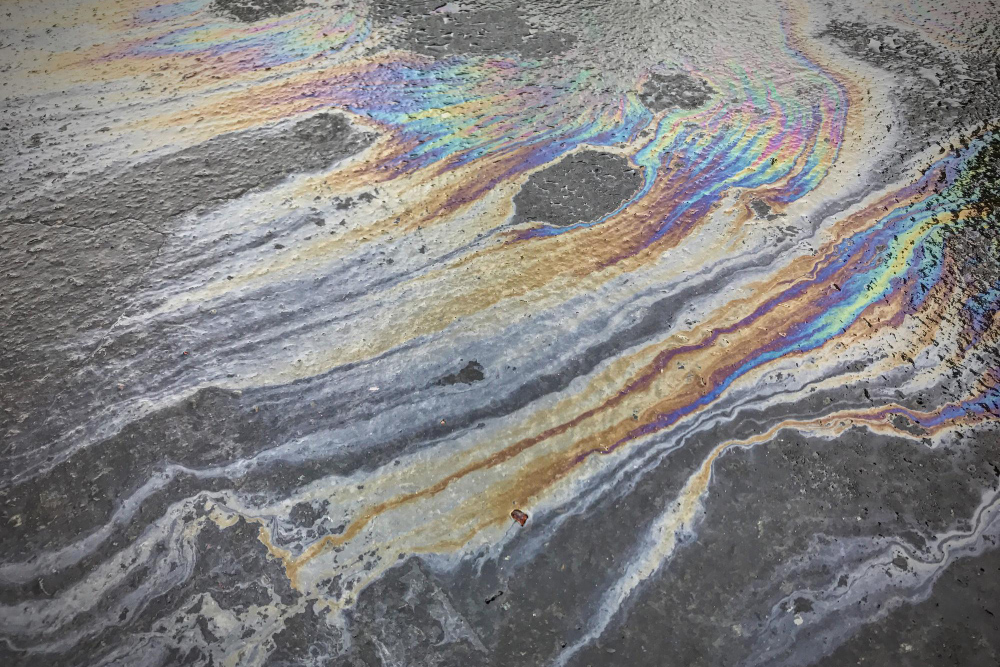
Oil stains on asphalt pavement are more than just an eyesore. Left untreated, these stains can weaken the pavement’s structure, leading to cracks, potholes, and the need for expensive repairs. If you’ve struggled with stubborn oil stains or want to protect your asphalt for the future, this guide will walk you through both removing existing stains and preventing new ones.
Read on to discover easy DIY methods, professional solutions, and preventative measures to maintain your asphalt driveway or lot in top shape.
Oil stains do more than diminish the visual appeal of your driveway or parking lot. They actually pose a structural risk to asphalt, which is made of aggregates held together by a petroleum-based binder. When oil seeps into the pavement, it breaks down the binder, weakening the asphalt's integrity over time.
This can result in soft spots, cracks, and eventually potholes. For property owners in Sanford, FL, where heat accelerates this damage, keeping asphalt clean and well-maintained is especially important.
When it comes to oil stain removal, the key is to act fast. Fresh stains are much easier to clean than older stains that have been absorbed into the asphalt. Here are some effective methods to clean oil stains from asphalt pavement:
Baking soda and cat litter are excellent quick fixes for fresh spills. Here's how to use them effectively:
This simple method can handle light stains and prevent the oil from seeping deeper into the asphalt.
For greasy and stubborn stains, dish soap and commercial degreasers are your go-to solutions:
Professional degreasers are excellent for more difficult stains, but make sure they’re safe for use on asphalt to avoid causing additional damage.
For deeply embedded stains, specialized oil stain removers (available at hardware stores) are worth considering:
These products are formulated to neutralize oil without harming the pavement.
Pressure washing is one of the most effective methods for cleaning oil stains. Using hot water and appropriate detergents can eliminate even older stains. However, improper use of a pressure washer can damage asphalt, so it’s best to hire professionals if you’re unsure.
After removing existing stains, it’s important to take steps to prevent future ones. Proper prevention can extend the lifespan of your asphalt and keep it looking pristine. Here’s how to protect your pavement from oil stains moving forward:
Sealcoating is one of the best defenses against oil stains. A sealcoat provides a protective layer over your asphalt, preventing oil and other harmful substances from penetrating. Benefits of sealcoating include:
Regular cleaning can minimize the impact of spills. Schedule routine maintenance to identify and remove oil stains before they become a problem. Use mild detergents and power washing to keep your surface clean.
For areas where vehicles frequently park, consider using mats or pads designed to absorb oil drips. These are especially useful for protecting high-traffic areas like driveways or parking spaces.
Encourage vehicle owners to perform regular maintenance on their cars and fix any oil leaks promptly. Preventing oil drips at their source can significantly reduce stains on your asphalt.
Schedule regular inspections with a professional asphalt repair company. They can identify weak spots, repair small cracks, and provide proactive maintenance to keep oil stains and damage at bay.
Sanford's warm climate speeds up the breakdown of asphalt when oil and other chemicals are left untreated. This makes routine maintenance and preventative measures even more essential for business owners and residents alike.
Whether your property includes a driveway, parking lot, or roadway, maintaining its quality ensures safety, enhances curb appeal, and saves money on costly repairs.
If your asphalt has oil stains or cracks that need professional care, Florida Sealcoating is here to help. Our team specializes in asphalt repairs in Sanford, FL, including stain removal, sealcoating, and crack repairs to keep your pavement in excellent shape.
Contact Florida Sealcoating for a free estimate on asphalt repairs in Sanford, FL. Our experts will help you restore and protect your pavement for years to come. Don’t wait until it’s too late!